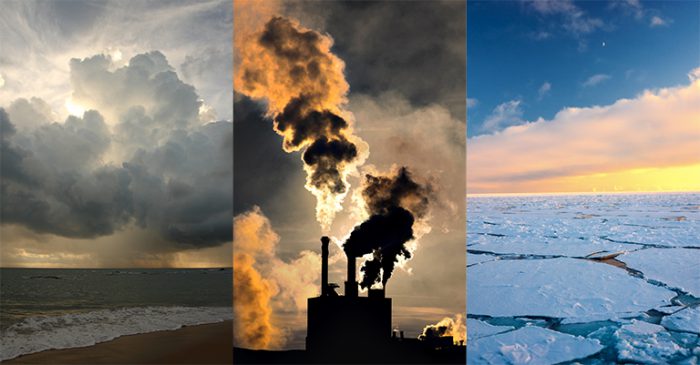The Mayors of Pittsburgh and Paris: We Have Our Own Climate Deal
Last week, President Donald Trump tried to pit our two cities against each other when he announced, in pulling out of the Paris Agreement on Climate Change, “I was elected to represent the citizens of Pittsburgh, not Paris.” As the mayors of Pittsburgh and Paris, we’re here to say that we’re more united than ever.
Though separated by an ocean and a language, we share a desire to do what is best for our citizens and our planet. That means putting aside parochial politics and embracing the global challenge of fighting climate change. In doing so, we can create a cleaner, healthier, more prosperous world for Parisians, Pittsburghers and everyone else on the planet.
As the sun sets each evening on the Allegheny River, Pittsburgh’s Rachel Carson Bridge lights up with 27,000 multi-colored bulbs. This nightly display downtown in the City of Bridges is powered entirely by 16 wind turbines attached to the arches of the bridge. It’s just one example of how a city once famous for its steel mills has emerged as a trailblazer in environmental innovation.
The experience of Pittsburgh in the three decades since the collapse of the steel industry reveals how a commitment to science, research and green technology can transform our cities. As late as the 1940s, the air hung heavy with pollution from steel mills. Streetlights were needed 24 hours a day to see through the smog. Today, 13,000 Pittsburghers are employed in the renewable energy industry. The city’s Phipps Conservatory is recognized as one of the world’s greenest buildings, generating all of its own energy and treating and reusing all water captured on site. Investments in smart infrastructure, bike sharing programs, new mass transit options and building efficiency means Pittsburgh is on track to meet our goal of slashing greenhouse gas emissions by 20 percent by 2023. While the majority of electricity in the state of Pennsylvania is still generated from fossil fuels, Pittsburgh will be 100 percent powered by renewable energy by 2035.
"We share a desire to do what is best for our citizens & our planet." -Mayors of Pittsburgh & Paris #ParisAgreement https://t.co/tM2na6g1it
— ZONDITS (@ZonditsEE) June 8, 2017
We Pittsburghers are proud of our industrial history, but we are preparing for a prosperous future. That means addressing our air quality, which remains among the worst in the nation. That means ensuring that the shift to sustainable infrastructure tackles inequality between communities. And that means taking climate change seriously.
In Paris — another city famous for its bridges — we are inspired by the resolve of Pittsburgh to deliver on the ambition of the Paris Agreement by building an ever more sustainable and thriving city. In the City of Lights, we’re taking big steps to boost our economy, encourage social mobility and improve the health of our citizens. In recent years, we reclaimed the right bank of the River Seine — an iconic part of the city that was previously dominated by polluting vehicles — for pedestrian use.
In the absence of executive leadership in the United States, an unprecedented alliance is emerging among cities like ours to push progress forward. We are both members of the Global Covenant of Mayors for Climate and Energy, which represents more than 7,400 cities around the world committed to local climate action. Pittsburgh is one of nearly 250 cities in the United States, representing 56 million Americans, whose mayors have committed to honor and uphold the goals of the Paris Agreement. We are being joined by business leaders, governors, university presidents and millions of citizens across the United States to pledge “We Are Still In” — and we will achieve and exceed America’s commitment to the Paris Agreement. And through C40 Cities, the global network of 91 cities, of which I, Mayor Hidalgo, serve as chairwoman, mayors representing 650 million citizens are pledging their determination to deliver on the Paris Agreement.
As Mayor of Pittsburgh, I was elected to represent the citizens of Pittsburgh, not Paris.
As Mayor of Paris, I was elected to represent the citizens of Paris, not Pittsburgh.
But the only way to do right by Pittsburghers and Parisians is to abide by the principles of the Paris Agreement, which guarantees the future health and prosperity of both of our cities — and every other city in the world.

